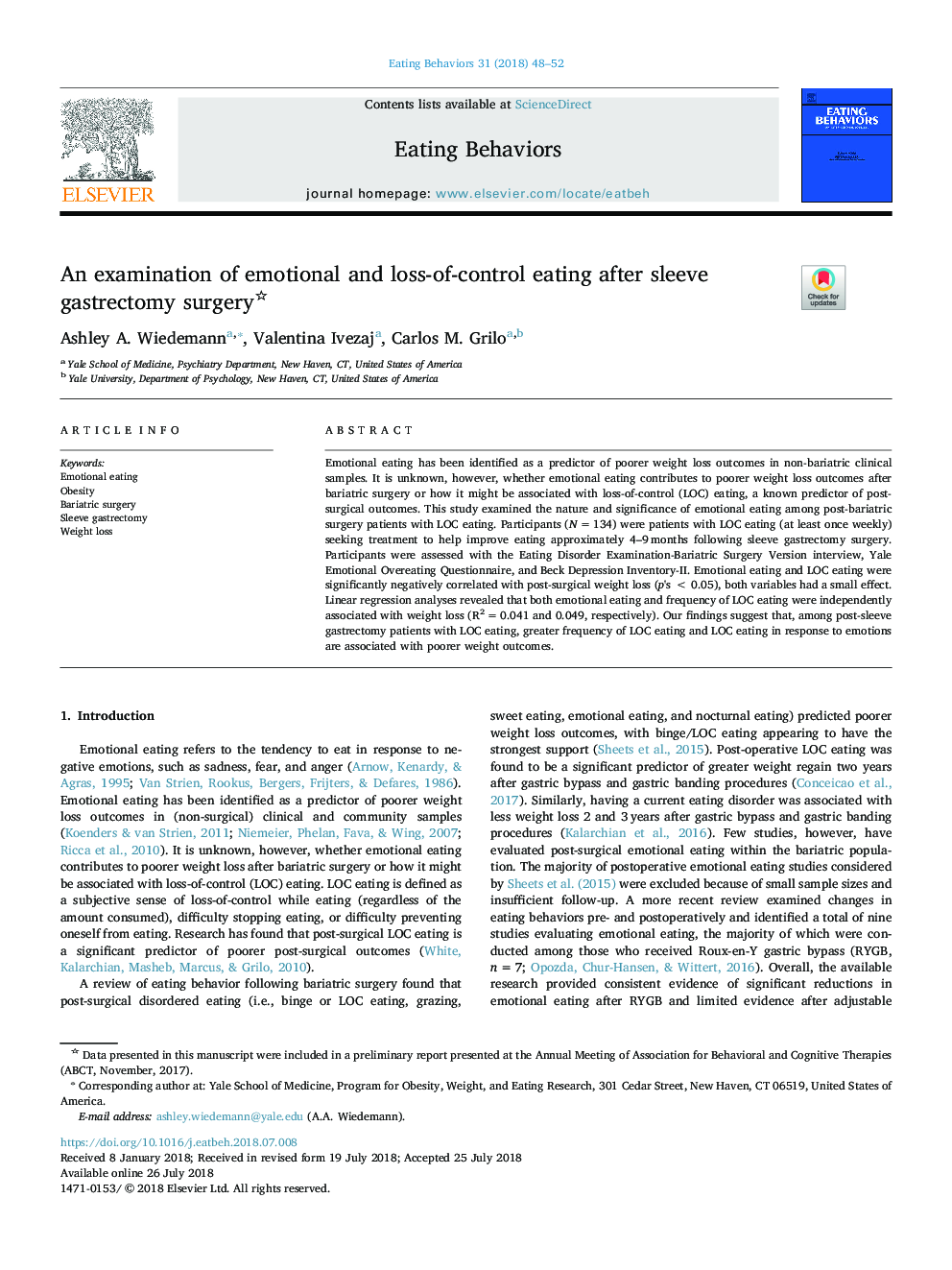| Article ID | Journal | Published Year | Pages | File Type |
|---|---|---|---|---|
| 7264791 | Eating Behaviors | 2018 | 5 Pages |
Abstract
Emotional eating has been identified as a predictor of poorer weight loss outcomes in non-bariatric clinical samples. It is unknown, however, whether emotional eating contributes to poorer weight loss outcomes after bariatric surgery or how it might be associated with loss-of-control (LOC) eating, a known predictor of post-surgical outcomes. This study examined the nature and significance of emotional eating among post-bariatric surgery patients with LOC eating. Participants (Nâ¯=â¯134) were patients with LOC eating (at least once weekly) seeking treatment to help improve eating approximately 4-9â¯months following sleeve gastrectomy surgery. Participants were assessed with the Eating Disorder Examination-Bariatric Surgery Version interview, Yale Emotional Overeating Questionnaire, and Beck Depression Inventory-II. Emotional eating and LOC eating were significantly negatively correlated with post-surgical weight loss (p'sâ¯<â¯0.05), both variables had a small effect. Linear regression analyses revealed that both emotional eating and frequency of LOC eating were independently associated with weight loss (R2â¯=â¯0.041 and 0.049, respectively). Our findings suggest that, among post-sleeve gastrectomy patients with LOC eating, greater frequency of LOC eating and LOC eating in response to emotions are associated with poorer weight outcomes.
Related Topics
Life Sciences
Neuroscience
Behavioral Neuroscience
Authors
Ashley A. Wiedemann, Valentina Ivezaj, Carlos M. Grilo,
